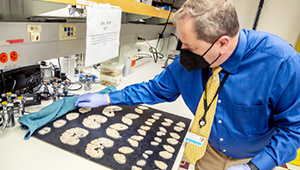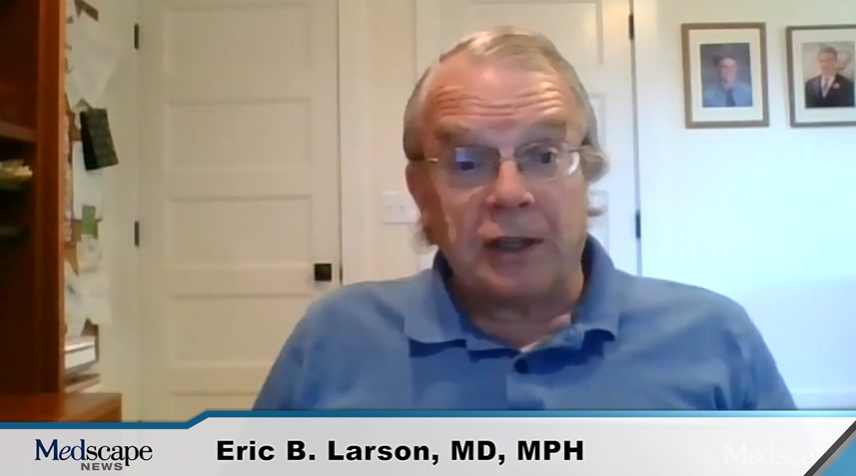Suggestions
Eric B. Larson
Senior Investigator, Kaiser Permanente Washington Health Research Institute
Eric B. Larson, MD, MPH, is a prominent researcher and physician who has made significant contributions to the fields of geriatrics, health services, and clinical research. Here are some key points about his background and career:
Professional Roles
- Senior Investigator at Kaiser Permanente Washington Health Research Institute (KPWHRI)
- Former Executive Director of KPWHRI (2002-2019)
- Former Vice President for Research and Health Care Innovation at Kaiser Foundation Health Plan of Washington (2017-2019)
- Professor at the University of Washington School of Medicine (Departments of Medicine and Health Services)
- Adjunct Professor at the University of Washington School of Public Health
Research Focus
Dr. Larson's research interests include:
- Aging and geriatrics
- Alzheimer's disease and dementia
- Health services research
- Clinical research
- Genomics
He is best known for his work on the Adult Changes in Thought (ACT) study, a long-standing collaboration between Kaiser Permanente Washington and the University of Washington. This study has produced groundbreaking findings on factors affecting cognitive decline and dementia risk in older adults.14
Education
- MD from Harvard University (1969-1973)
- MPH from the University of Washington School of Public Health (1975-1977)
- BA in History from Stanford University (1965-1969)2
Honors and Achievements
- Elected member of the National Academy of Medicine since 2007
- Master of the American College of Physicians (2006)
- Robert J. Glaser Award from the Society of General Internal Medicine (2004)
- Author of over 500 peer-reviewed scientific papers and more than a dozen books1
Recent Developments
Dr. Larson officially retired from Kaiser Permanente in July 2022 but continues to be involved in research, particularly with the ACT study, now based at the University of Washington Medicine.3
Throughout his career, Dr. Larson has been dedicated to improving our understanding of aging and finding ways to promote healthy aging and prevent or delay the onset of dementia. His work has had a significant impact on clinical practice and public health approaches to aging.

